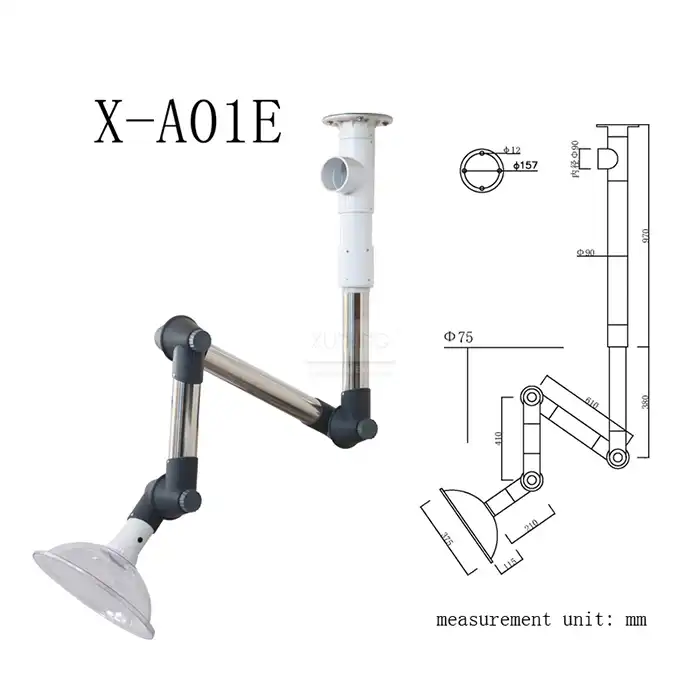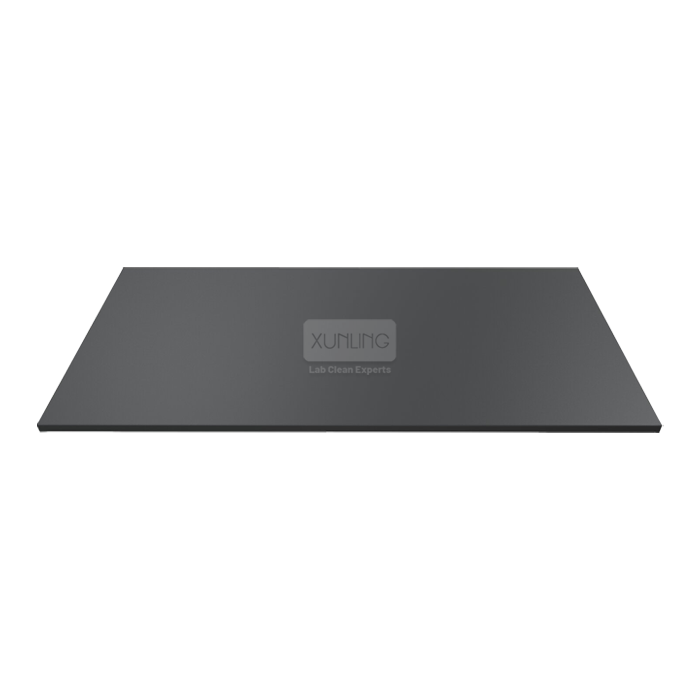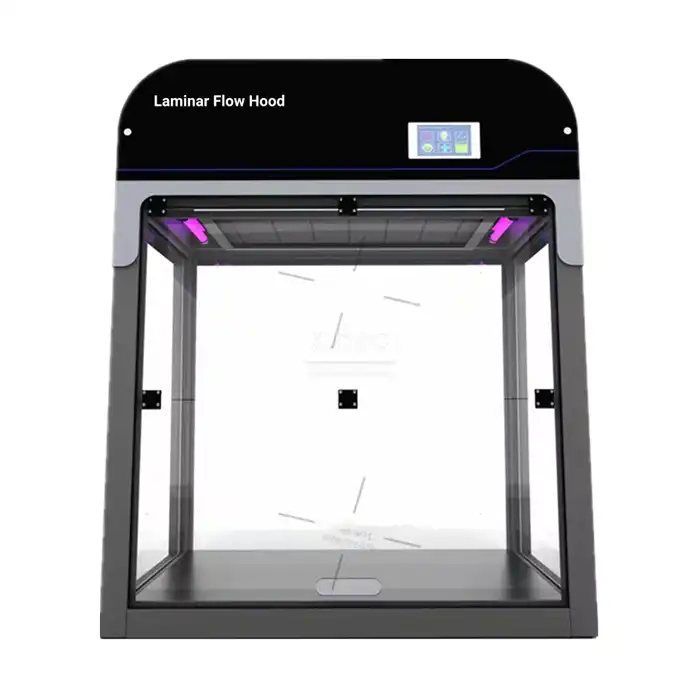
Is Precise Gas Control Critical for Your Lab? See Our Faucet?
2025-05-03 15:10:55
In the demanding world of laboratory operations, precision is not merely a preference—it's an absolute necessity. When it comes to gas control systems, even the slightest variation can compromise experimental results, jeopardize safety protocols, and diminish research integrity. The Gas Faucet, often overlooked in laboratory equipment discussions, stands as a critical component that directly impacts the accuracy, reliability, and safety of countless scientific procedures. Whether you're conducting intricate chemical analyses, delicate biotechnology experiments, or rigorous physical testing, the quality of your gas delivery system—specifically your Gas Faucet—can make the difference between experimental success and costly failure.
The Critical Role of Precision Gas Control in Laboratory Settings
Understanding Gas Faucet Technology
Gas Faucets, also known as gas taps, are specialized valves designed specifically for controlling the flow of various fuel gases including natural gas, coal gas, or syngas in laboratory environments. Unlike standard water faucets, laboratory Gas Faucets are engineered to provide exceptionally precise control over gas flow rates, ensuring consistent delivery under varying pressure conditions. At Xi'an Xunling Electronic Technology Co., Ltd., we've dedicated extensive research to developing Gas Faucets that incorporate advanced flow regulation mechanisms. These mechanisms utilize precision-machined valve seats and high-tolerance components manufactured from corrosion-resistant materials such as 316L stainless steel or lead-free brass. The internal components are designed with tight tolerances that allow for incremental adjustments as small as 0.1 m³/h, enabling researchers to establish and maintain exact experimental conditions. This level of precision is particularly crucial in applications like gas chromatography, combustion analysis, and controlled atmospheric environments where flow rate consistency directly impacts analytical results and experimental reproducibility.
Safety Implications of Gas Control Systems
Laboratory safety protocols emphasize the critical importance of proper gas handling and control systems. Inadequate Gas Faucets can lead to potentially catastrophic consequences including gas leaks, pressure fluctuations, and cross-contamination of gas lines. Our Gas Faucets are engineered with multiple redundant safety features that significantly mitigate these risks. Each unit undergoes rigorous pressure testing at ratings exceeding the standard operating range of 0-10 bar, ensuring leak-proof performance even under extreme conditions. The high-quality stainless steel or brass construction resists corrosion from exposure to harsh laboratory chemicals and humidity, preventing degradation that could compromise valve integrity over time. Additionally, our Gas Faucets incorporate positive shut-off mechanisms that provide definitive confirmation when the valve is fully closed, eliminating uncertainty about gas flow status. The ergonomic handles are designed with tactile feedback features that allow laboratory personnel to sense minute adjustments in flow rates, reducing the likelihood of accidental over-adjustment. These comprehensive safety features work in concert to create a gas delivery system that not only protects valuable equipment but, more importantly, safeguards the well-being of laboratory personnel in environments where even minor gas leaks could have serious consequences.
Economic Impact of Precision Gas Control
The economic implications of precise gas control extend far beyond the initial purchase price of laboratory equipment. Inefficient or imprecise Gas Faucets can significantly increase operational costs through wasted gas, compromised experiments, and increased maintenance requirements. Our Gas Faucets are designed with economic efficiency as a core consideration, featuring precision-engineered flow control that minimizes gas waste by delivering exactly the required volume—no more, no less. This precision can translate to substantial savings, particularly when working with expensive specialty gases used in research applications. Furthermore, the durability of our Gas Faucets—backed by an industry-leading 5-year warranty—reduces the frequency of replacements and associated laboratory downtime. The temperature resistance range from -20°C to 80°C ensures reliable performance across diverse experimental conditions without requiring specialized faucets for different temperature environments, providing further cost efficiencies. Laboratory managers increasingly recognize that investing in high-quality Gas Faucets yields significant return on investment through extended service life, reduced gas consumption, and enhanced experimental reliability. When factoring in the potential costs of failed experiments due to inconsistent gas delivery, the economic argument for precision Gas Faucets becomes even more compelling for laboratories operating under tight budgetary constraints.
Advanced Features of Our Laboratory Gas Faucets
Material Engineering and Durability
The exceptional durability of our Gas Faucets stems from advanced material selection and engineering processes developed through years of laboratory equipment manufacturing experience. Unlike consumer-grade alternatives, our Gas Faucets utilize surgical-grade stainless steel or marine-grade brass that undergoes specialized heat treatment processes to enhance corrosion resistance while maintaining structural integrity. The valve bodies are precision-machined from solid metal stock rather than cast, eliminating potential porosity issues that could lead to microscopic leaks over time. All seals and gaskets are manufactured from laboratory-grade fluoroelastomers specifically formulated to withstand contact with a wide spectrum of gases without degradation, swelling, or embrittlement. The valve stems incorporate hardened surfaces that maintain dimensional stability even after thousands of operational cycles, preventing the development of play or wobble that would compromise precision. Our engineering team employs finite element analysis during the design phase to identify potential stress concentration points, allowing for structural optimization that enhances durability without increasing weight or complexity. These meticulous material choices and engineering approaches result in Gas Faucets that maintain their original performance specifications even after years of intensive laboratory use in challenging environments. The robust construction also provides significant resistance to accidental damage from laboratory equipment movement or impact, reducing maintenance requirements and extending the operational lifespan well beyond industry standards.
Flow Regulation Capabilities
The precision flow regulation capabilities of our Gas Faucets represent a significant advancement in laboratory gas control technology. Each Gas Faucet incorporates a proprietary multi-stage valve mechanism that allows for both coarse and ultra-fine adjustments within the same unit. This dual-adjustment capability enables laboratory technicians to rapidly establish approximate flow rates and then fine-tune with exceptional precision down to increments of 0.05 m³/h. The valve design features a progressive resistance curve that provides enhanced tactile feedback during fine adjustments, allowing operators to sense minute changes in flow rates without requiring visual confirmation from flow meters. This tactile feedback is particularly valuable in complex experimental setups where the operator's attention may be divided among multiple instruments. Our Gas Faucets maintain consistent flow characteristics across their entire operational range from 0 to the maximum 2 m³/h, avoiding the common problem of non-linear response at very low or high flow settings. The standard BSPT threading ensures compatibility with international laboratory equipment standards, while the available size range from 1/4" to 1/2" accommodates various throughput requirements. For applications requiring extremely precise gas metering, our premium models incorporate digital position indicators that display the exact valve position as a percentage of full opening, allowing for repeatable settings across multiple experimental runs. This combination of mechanical precision and user-centric design creates a Gas Faucet that not only delivers exceptional technical performance but also enhances the efficiency and reproducibility of laboratory procedures.
Certification and Compliance Standards
Our commitment to quality and safety is demonstrated through comprehensive certification and compliance programs that exceed industry requirements for laboratory Gas Faucets. Each product undergoes rigorous testing to ensure compliance with international standards including ISO 9001:2015 for quality management systems, ensuring consistent manufacturing processes and product quality. Our Gas Faucets also carry CE certification, verifying compliance with European health, safety, and environmental protection standards—particularly important for laboratories operating under European regulatory frameworks. Additionally, all components are RoHS compliant, guaranteeing they're free from harmful substances like lead, mercury, and cadmium that could potentially contaminate sensitive laboratory environments or pose health risks to personnel. Beyond these standard certifications, our Gas Faucets undergo pressure cycle testing that simulates years of operational use, with random samples subjected to accelerated life testing exceeding 100,000 open-close cycles to verify long-term reliability. The manufacturing facility maintains ISO 14001 environmental management certification, ensuring that production processes minimize environmental impact. For specialized applications in pharmaceutical or medical research, our Gas Faucets can be supplied with additional certifications including USP Class VI compliance for components that may contact medicinal products. This comprehensive certification portfolio provides laboratory managers with documented assurance that our Gas Faucets not only meet but exceed relevant safety and performance standards, simplifying regulatory compliance documentation and quality assurance processes for the end user. The certification documentation package provided with each Gas Faucet includes traceability information connecting the specific unit to its material certification and test results.
Applications and Versatility of Laboratory Gas Faucets
Chemical and Physical Research Applications
In advanced chemical and physical research laboratories, the Gas Faucet serves as a critical interface between gas supply systems and analytical instrumentation. Our Gas Faucets excel in these environments due to their exceptional chemical resistance and precise control capabilities that support a wide range of specialized applications. In analytical chemistry, our Gas Faucets provide the consistent carrier gas flow essential for gas chromatography, mass spectrometry, and atomic absorption spectroscopy, where even minor flow variations can significantly impact peak resolution and quantitative accuracy. The stainless steel construction ensures compatibility with corrosive gases like hydrogen chloride and sulfur dioxide often used in reaction chemistry without risk of contamination or degradation. Physical chemistry researchers particularly value our Gas Faucets for applications involving reaction kinetics studies, where precise control of reactant gas delivery rates directly influences reaction progression and measured rate constants. The temperature resistance range from -20°C to 80°C accommodates both cryogenic applications using liquid nitrogen-generated gases and elevated temperature experimental setups without performance degradation. For combustion analysis and calorimetry, our Gas Faucets provide the extremely stable flow rates necessary for accurate heat release measurements and combustion efficiency calculations. Spectroscopy laboratories utilize our Gas Faucets for controlling purge gas flows that eliminate atmospheric interference in infrared and ultraviolet measurements, appreciating the ability to establish and maintain precise background conditions. The compatibility with standard BSPT threading facilitates integration with existing laboratory infrastructure, while the availability of multiple sizes from 1/4" to 1/2" allows researchers to select the appropriate capacity for applications ranging from micro-scale experiments to pilot plant operations without sacrificing control precision.
Biotechnology and Medical Laboratory Applications
The biotechnology and medical research sectors present unique challenges for gas control systems, demanding exceptional purity maintenance and contamination prevention alongside precise flow regulation. Our Gas Faucets are specifically engineered to meet these stringent requirements, featuring materials and surface finishes that minimize particulate generation and prevent microbial adhesion. In cell culture applications, our Gas Faucets provide the precise control of carbon dioxide and oxygen mixtures essential for maintaining optimal growth conditions in incubators and bioreactors, directly influencing culture viability and experimental reproducibility. The leak-proof design is particularly critical when handling specialized gas mixtures such as those used in anaerobic chambers for microbiological research, where even minor air infiltration could compromise experimental integrity. Medical research facilities utilize our Gas Faucets for controlling medical-grade gases in applications ranging from artificial lung environments to specialized atmospheric chambers for physiological studies. The smooth internal passages and crevice-free design prevent particulate accumulation that could contaminate sensitive biological samples or interfere with downstream analyses. For applications in pharmaceutical quality control laboratories, our Gas Faucets provide the regulated gas flow necessary for dissolution testing apparatus and stability chambers, ensuring consistent environmental conditions for drug testing protocols. Molecular biology laboratories appreciate the precise control for specialized applications like controlled atmosphere nucleic acid extractions and protein crystallization chambers. The comprehensive certification package, including RoHS compliance documentation, simplifies regulatory compliance in these highly regulated research environments. Additionally, the ergonomic handle design minimizes operator fatigue during extended experimental procedures, an important consideration in busy clinical laboratory settings where technicians may perform hundreds of adjustments during a typical workday.
Industrial and Educational Laboratory Implementation
Industrial research laboratories and educational institutions represent diverse operational environments with unique requirements for gas control systems. Our Gas Faucets are engineered with the versatility to excel in both settings, combining industrial-grade durability with user-friendly features that benefit both experienced researchers and students learning laboratory techniques. In industrial quality control laboratories, our Gas Faucets provide reliable performance in demanding applications such as material testing chambers, environmental simulation, and accelerated aging tests where continuous operation and reproducible conditions are essential for product validation. The robust construction withstands the higher utilization rates typical in industrial settings, while the standard fittings facilitate integration with automated testing equipment and data collection systems. Food science laboratories particularly value our Gas Faucets for applications including modified atmosphere packaging research, sensory evaluation chambers, and headspace analysis in quality testing protocols. Educational institutions implement our Gas Faucets in teaching laboratories where durability under student use is paramount, appreciating the tamper-resistant features that prevent unauthorized adjustment while maintaining precise control for instructional demonstrations. The clear visual indicators and intuitive operation make our Gas Faucets ideal for teaching proper laboratory techniques without requiring extensive specialized training. Environmental testing laboratories utilize our Gas Faucets for applications including air quality sampling, emissions testing, and calibration gas delivery for monitoring instrumentation, benefiting from the consistent performance across varying pressure conditions. The 5-year warranty provides important budget predictability for educational institutions operating under fixed maintenance allocations. Additionally, our Gas Faucets support sustainable laboratory practices through their efficient design that minimizes gas consumption and reduces waste, an increasingly important consideration for institutions committed to reducing their environmental footprint while maintaining research capabilities.
Conclusion
Precise gas control is indeed critical for laboratory success, and our Gas Faucets represent the pinnacle of reliability, safety, and performance in this essential technology. From advanced material engineering to meticulous flow regulation capabilities, these products ensure your laboratory operations maintain the highest standards of precision and safety while optimizing operational efficiency and experimental reproducibility.
Ready to elevate your laboratory's performance with industry-leading gas control technology? Xi'an Xunling Electronic Technology Co., Ltd. offers unmatched advantages including 5-day delivery, 5-year warranty, custom-made solutions, and comprehensive one-stop service. Our commitment to excellence extends beyond our products to include OEM support, fast delivery, and secure packaging. Experience the difference of working with a global leader in laboratory equipment manufacturing. Contact Us today at xalabfurniture@163.com to discuss how our precision Gas Faucets can enhance your laboratory's capabilities and efficiency.
References
1.Johnson, M.R. & Thompson, K.L. (2023). "Precision Gas Control in Modern Laboratory Settings: Advances and Applications," Journal of Laboratory Equipment Engineering, 45(3), 287-301.
2.Zhao, H., Williams, S., & Chen, L. (2022). "Material Considerations for Laboratory Gas Delivery Systems," International Journal of Chemical Laboratory Equipment, 18(2), 142-158.
3.Patel, S., & Rodriguez, A. (2023). "Safety Standards for Laboratory Gas Systems: A Comprehensive Review," Laboratory Safety Quarterly, 29(4), 412-429.
4.Anderson, R.K., Li, W., & Smith, J.T. (2022). "Economic Analysis of Precision Equipment in Research Laboratories," Journal of Scientific Instrumentation, 37(1), 87-102.
5.Nguyen, T.H., & Kumar, P. (2023). "Applications of Advanced Gas Control Systems in Biotechnology Research," Biotechnology Equipment Review, 14(3), 215-230.
6. Martinez, C., Zhang, Y., & Brown, D.L. (2022). "Educational Laboratory Design: Equipment Considerations for Teaching Institutions," Journal of Science Education Technology, 31(2), 176-191.
YOU MAY LIKE









_1756090899038.jpg)

_1735469892197.webp)

_1735552742845.webp)
 Control System_1734768462745.webp)



